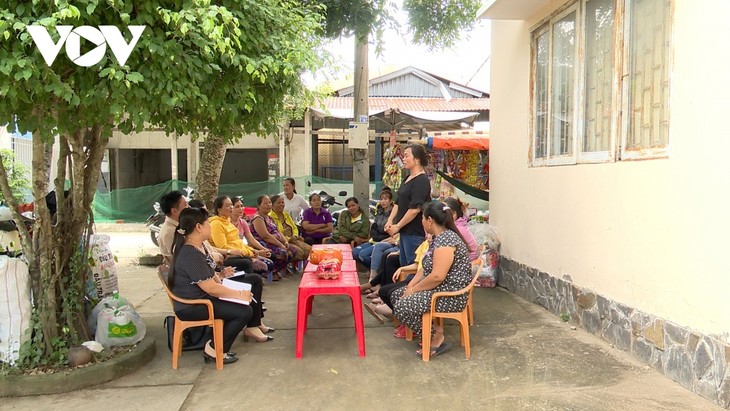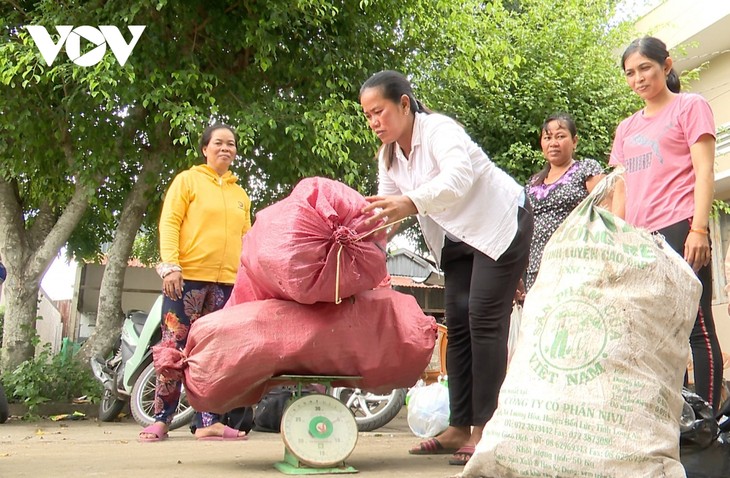(VOVWORLD) - Some women in the Mekong Delta province of Soc Trang have, for years, collected and sorted disposable bottles, cartons, scrap paper, and plastic to reduce environmental pollution and create some income. The “Turn waste into money” model has made many localities in Soc Trang cleaner and more beautiful.

Women in An Trach hamlet, Chau Thanh district, share experience in sorting waste.
|
On the 19th day of each month, a group of women in Phuoc Thuan hamlet in Chau Thanh district bring the collected solid waste to a central location to sell.
Trieu Thi Vui, a group member, said the money is put into a savings fund to create additional income for the members. Since the model was adopted, the hamlet’s environment has significantly improved.
Vui told VOV, “By joining the model, I’ve kept my house tidy and encouraged other women to join us in protecting the environment.”
Collecting solid waste and selling it is something the women of An Trach hamlet have been doing for less than a year, but it’s been quite effective.
 Women in Chau Thanh district gather the collected solid waste at a central location to sell. Women in Chau Thanh district gather the collected solid waste at a central location to sell.
|
Each month, although they earn very little from selling the waste, they continue to participate because their first concern is to improve the environment.
Thach Thi Saly, a group member, says new members are told how to sort and treat the waste. Garbage collection has now become a daily habit and is keeping their living area free of waste.
“Joining the group helps us keep our houses and the surrounding area green, clean, and beautiful. And the money partly covers the family expenses,” Saly added.
The model is being adopted by hamlets and communes throughout Chau Thanh district.
Pham Thi Ngoc Bich, chairwoman of An Hiep commune’s Women's Union, said the "Turn waste into money" model has raised the awareness of many people about protecting the environment, one of the 19 criteria of building a new-style rural area.
“Local women are learning how to differentiate between organic and inorganic waste and turn the organic waste into plant fertilizer,” said Bich.
“Turn waste into money” was selected as a role model at the third annual coastal forum in Cambodia and Thailand organized in 2014 by the International Union for Conservation of Nature.